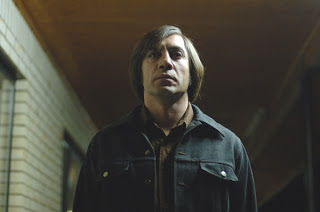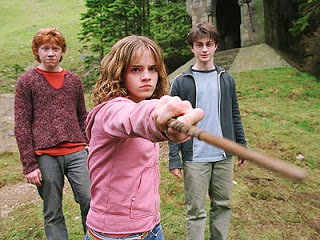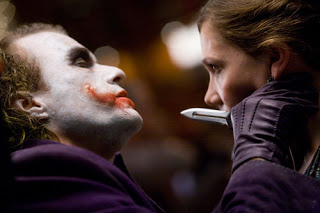NOMINEES
The Curious Case of Benjamin Button – Eric Roth
Doubt – John Patrick Shanley
Frost/Nixon – Peter Morgan
The Reader – David Hare
Slumdog Millionaire – Simon Beaufoy
WILL WIN
In all honesty, this category should be a lot harder to predict than it actually is. Four of the five nominated films are also up for Best Picture, so that tack gets us nowhere. Looking at the writers themselves, two have Oscar pedigrees (Roth already has a statuette for Forrest Gump, while Hare received a nomination for The Hours), and two others (Morgan and Shanley) have adapted their own critically lauded plays for the screen. And none of these candidates has a chance in Hell of winning an Oscar this year.
The winner, of course, will be Simon Beaufoy for Slumdog Millionaire. Beaufoy isn’t exactly a screenwriting novice – he already has a nomination to his credit, however inexplicable, for The Full Monty – but his stature measures nowhere near that of his competitors. What he does have, though, is an unparalleled level of momentum; thus far Beaufoy has claimed victory on 11 different circuits, including an all-important nod from the Writers’ Guild of America. Throw in the fact that the Best Picture winner has claimed a corresponding screenplay award in four of the past five years, and Beaufoy is the easiest pick on the board other than perhaps Heath Ledger for Best Supporting Actor. Slumdog Millionaire pads its stats.
SHOULD WIN
I generally have a tough time choosing a preference in this category, primarily because I don’t read. In my mind, the key word in the Best Adapted Screenplay category isn’t “screenplay” but “adapted”. It is the duty of screenwriters in updating source material to maintain that source’s overarching themes and essence while also reshaping it for the screen so that it reads properly in the narrative language of cinema. A great adapted screenplay, therefore, doesn’t just transliterate a novel’s words but culls out subplots, fleshes out characters, and creates a wholly new piece of literature that resembles but does not copy the original.
This is why last year’s victory for No Country for Old Men in this category really bothered me. To be fair, I haven’t read Cormac McCarthy’s novel (although I did read The Road, and the less said about that, the better), but from what I’ve gathered, the Coen Brothers essentially created a page-for-page adaptation of the book. The movie, undeniably, was expertly crafted and phenomenally suspenseful, but if it was indeed a virtual reconstruction of McCarthy’s pages, then the screenplay itself was hardly laudable.
Now consider William Monahan’s Oscar-winning screenplay a year earlier for The Departed. Monahan, in adapting the electric Hong King thriller Infernal Affairs, transported it to a new location, wrote original dialogue, and branched out the central story in a number of exciting ways to create a deeper, more fulfilling motion picture. (He also fucked up the ending, but never mind that.) The Departed dutifully followed the basic structure of Infernal Affairs, but it was also an entirely new invention.
(Perhaps the example that best represents this dilemma is the Harry Potter franchise. Steve Kloves’ first two screenplays were so faithful to J.K. Rowling’s novels that they bordered on insipid – the resulting movies, while entertaining and impressive, were somehow uninspired. Rowling’s third novel, Harry Potter and the Prisoner of Azkaban, was considerably longer than the prior two; as such, Kloves had to compose an actual adaptation rather than a transmutation. He did so with astonishing clarity, trimming subplots and creating new scenes, and the resulting film felt fresh and hummed with vitality (replacing Chris Columbus with Alfonso Cuarón didn’t hurt). And yes, I’m simply mentioning this to psych myself up for this summer’s July 17 release of Harry Potter and the Half-Blood Prince. Fuck yeah.)
Back to the point about me not reading: In order to accurately judge the quality of an adapted screenplay, I feel as though I need to possess at least a cursory familiarity with the source material. Naturally, I haven’t read any of the novels or plays on which any of this year’s nominees are based. When it comes to movies, I may label myself as a worldly cineaste, but as far as books go, I’m as well-read as Kate Winslet’s character in The Reader.
As such, I’m forced to evaluate the nominated screenplays on their standalone merits. Doubt is an intriguing story, but John Patrick Shanley’s script is more workmanlike than anything, while Frost/Nixon is so steeped in the historical record that Peter Morgan’s screenplay is as much a chronicle (and massaging) of fact as an act of storytelling. David Hare does a nice job in general with The Reader, but there are a few minor characters who seem out of place (most notably several female students whose roles were likely more critical in the novel), and the flashback structure, while not disastrous, is occasionally ungainly.
Eric Roth’s script for The Curious Case of Benjamin Button is, if you’ll forgive me, a curiosity. While I mentioned that I haven’t read any of the original novels or plays among this crop of candidates, I do know from a surprising source – namely my father, who while considerably smarter than I am is no more literate – that F. Scott Fitzgerald’s short story The Curious Case of Benjamin Button was broadly comic, and Roth’s screenplay is anything but. While this tempts me to single out Roth for his visionary work in taking a farcical premise and transforming it into a tender, achingly sad romance, I can’t ignore the brilliance of Slumdog Millionaire. Admittedly I am entirely ignorant of Vikas Swarup’s original novel (called Q&A), but as shown on the screen, Simon Beaufoy’s script features all the hallmarks of great screenwriting – warm regard for its characters, sharp clarity in structure, and fearlessness in pursuing big emotional moments. Slumdog Millionaire is in contention for a number of awards this Oscar season, but it undoubtedly deserves this one.
DESERVING
The Dark Knight – Christopher Nolan & Jonathan Nolan. This is where The Dark Knight really sets itself apart from the superhero pack. The screenplay from the Nolan boys has everything: excellent dialogue, fully realized characters, an unforgettable villain, a relentless pace, legitimately intriguing moral questions, and a beautiful and poetic ending. The Dark Knight may be a superlative technical achievement, but it’s the story that elevates it to true greatness.
Miss Pettigrew Lives for a Day – David Magee & Simon Beaufoy. Simon Beaufoy had himself a hell of a year, huh? To be sure, Miss Pettigrew Lives for a Day is insubstantial when compared to Slumdog Millionaire, but it’s great fun. The story may be old-fashioned, but it nevertheless provides 90 minutes of pure enjoyment, and it’s hard to complain about that.
Jeremy Beck is the editor-in-chief of MovieManifesto. He watches more movies and television than he probably should.






